Biology > Final Exam Review > BIOL 2460 Anatomy Final Exam. Over 150 Questions & Answers (All)
BIOL 2460 Anatomy Final Exam. Over 150 Questions & Answers
Document Content and Description Below
1. Which type of adaptive immune cells secrete antibodies? B cells (plasma) 2. Natural killer cells are what type of white blood cell? Lymphocytes 3. Which of these is classified as one of the speci... al senses? Gustation, olfaction, vision, hearing and equilibrium 4. The blood cells involved in specific immunity are the white blood cells B & T cells 5. During exhalation, the diaphragm is? Relaxed 6. The right pulmonary arteries carry deoxygenated blood to the lungs. 7. An autonomic motor neuron whose cell body is within the CNS is called an upper motor neuron. 8. Bile is stored in the? Gallbladder 9. Capillaries that are the leakiest are? Sinusoids 10. The vibrations received by the tympanic membrane are transferred to the oval window by the? Bony ossicles (Malus, Incus, Stapes) 11. As each atrium contracts, where does blood move? Right- right ventricle. Left- left ventricle 12. Which of the below factors do not increase vascular resistance? Shortening and widening 13. The ureters and urinary bladder are lined by transitional epithelium 14. Which of the following responses is not caused by activation of the parasympathetic divisions of the ANS? increases secretion of digestive juices 15. During cold temperatures, the cremaster and dartos muscles of the scrotum will do what? Contract; move closer to the body 16. What vessels contain elastic fibers in the walls that are stretching during systole? Arteries 17. The middle part of the small intestine is? Jejunum 18. Which is not a major function of the kidney? Major functions are filtering blood, maintain blood pressure, regulate blood ion composition, regulate blood pH, regulate blood volume 19. What is the function of the glottis? Sound production in the larynx (vibrate) 20. All the circulating red blood cells in an adult originate in the? Red bone marrow 21. The appendix is an aggregation of what type of tissue? Lymphoid 22. The largest serous membrane of the body is? Peritoneum 23. Sympathetic stimulation of an arteriole in the kidneys results in? Decreased urinary output, higher blood pressure, higher blood volume 24. An obstruction of the common bile duct often results in? Gallstones, Jaundice 25. The diploid stem cell that gives rise to sperm are? Spermatogonia 26. In which lymphatic organ do B cells become mature and capable of mounting an immune response? Spleen 27. This is a sensory receptor that responds to pain? Nociceptors 28. Which of these substances is essentially absent in the urine of a healthy person? Proteins, glucose, nitrites, RBCs, WBCs 29. Bilirubin comes from the breakdown of? Heme from old red blood cells 30. Control of the diameter of the respiratory passages depends on? Vagus nerve. Both Parasympathetic & sympathetic (Dual innervation) 31. Type AB blood has which of the following characteristics? A and B surface antigens. No antiA or anti- B antibodies; universal recipient 32. A nephron is comprised of these 2 major regions? Renal corpuscle, renal tubule 33. An organ that has endocrine function and ultimately controls most other endocrine glands is the? pituitary gland 34. The serous membrane that lines the abdominal cavity? Peritoneum [Show More]
Last updated: 2 years ago
Preview 1 out of 9 pages
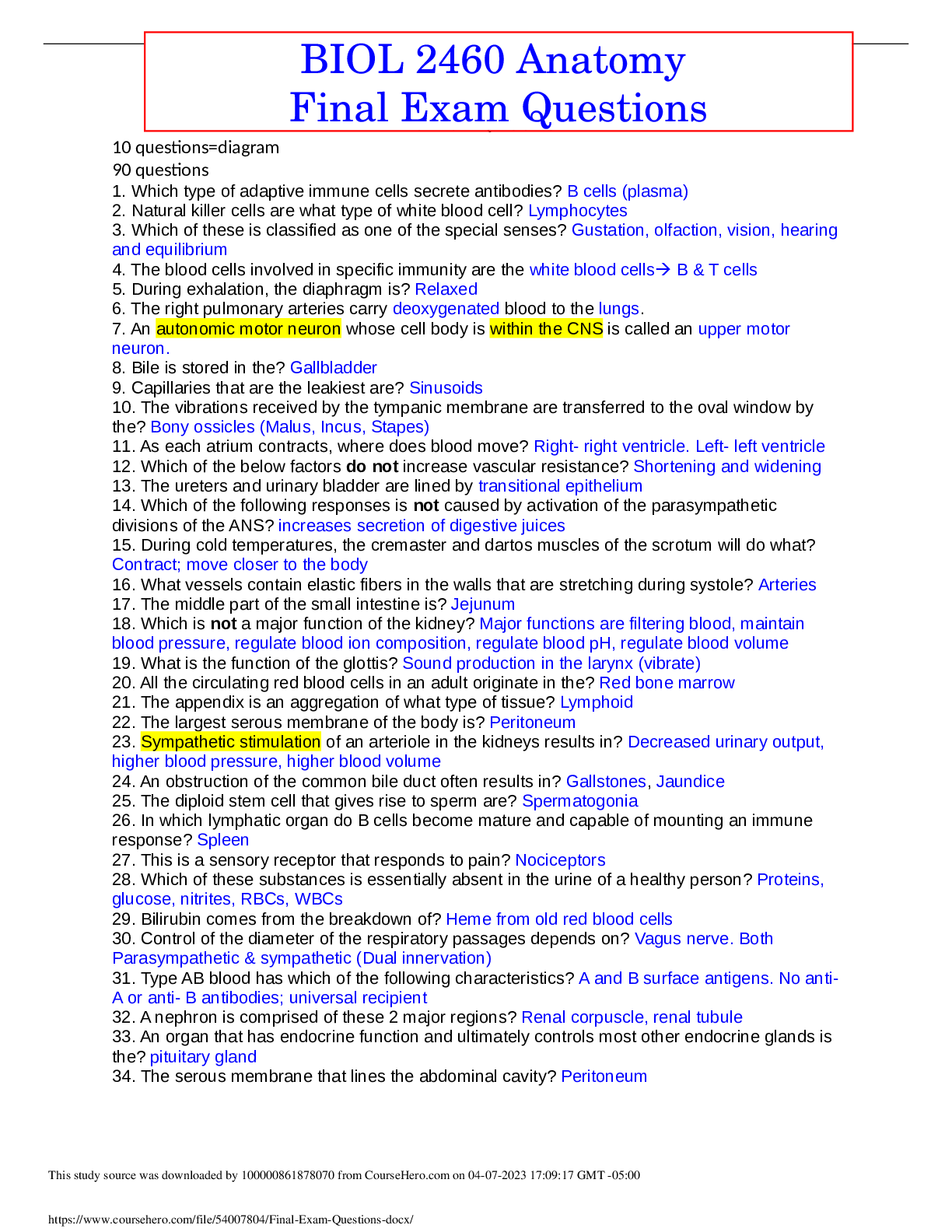
Buy this document to get the full access instantly
Instant Download Access after purchase
Buy NowInstant download
We Accept:

Reviews( 0 )
$9.50
Can't find what you want? Try our AI powered Search
Document information
Connected school, study & course
About the document
Uploaded On
Apr 08, 2023
Number of pages
9
Written in
Additional information
This document has been written for:
Uploaded
Apr 08, 2023
Downloads
0
Views
101

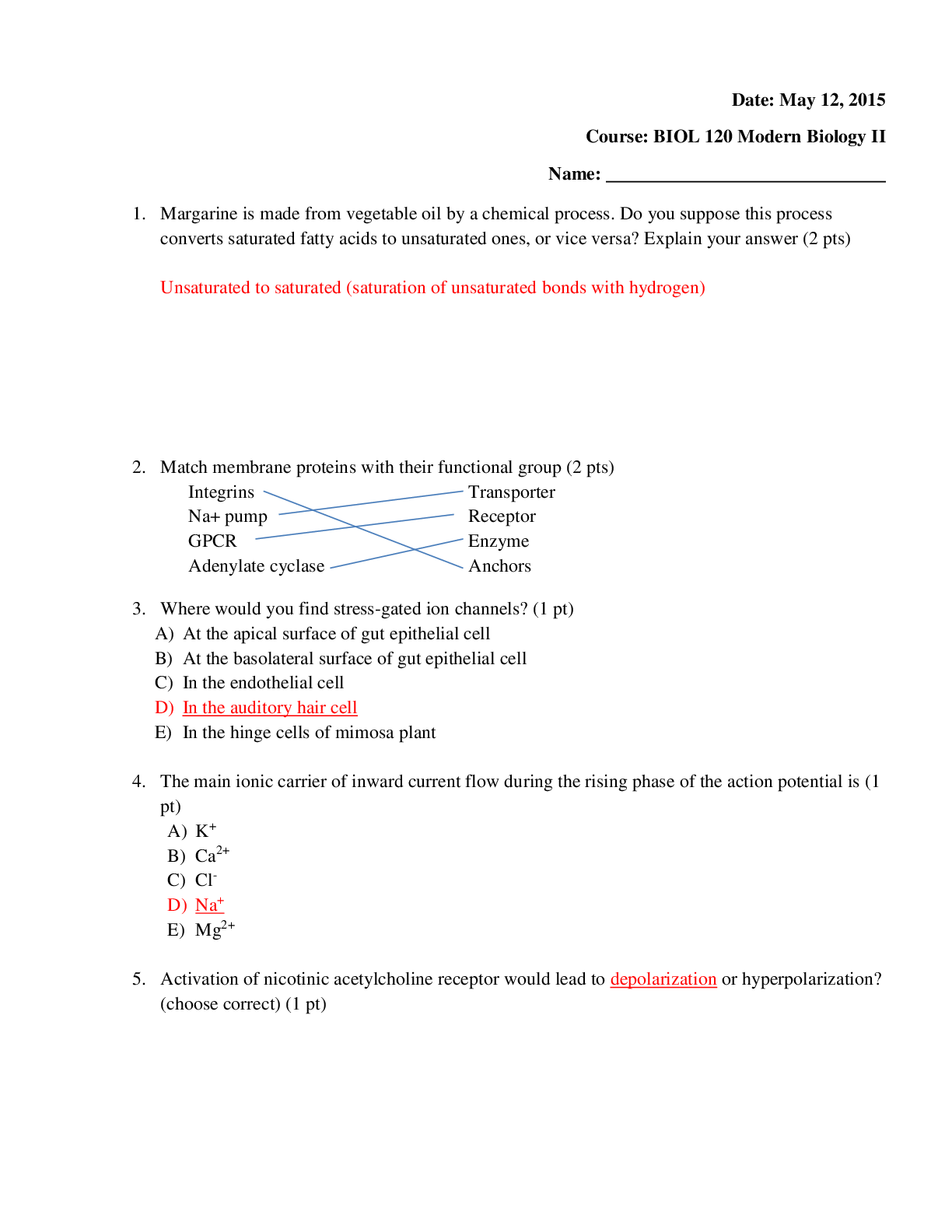
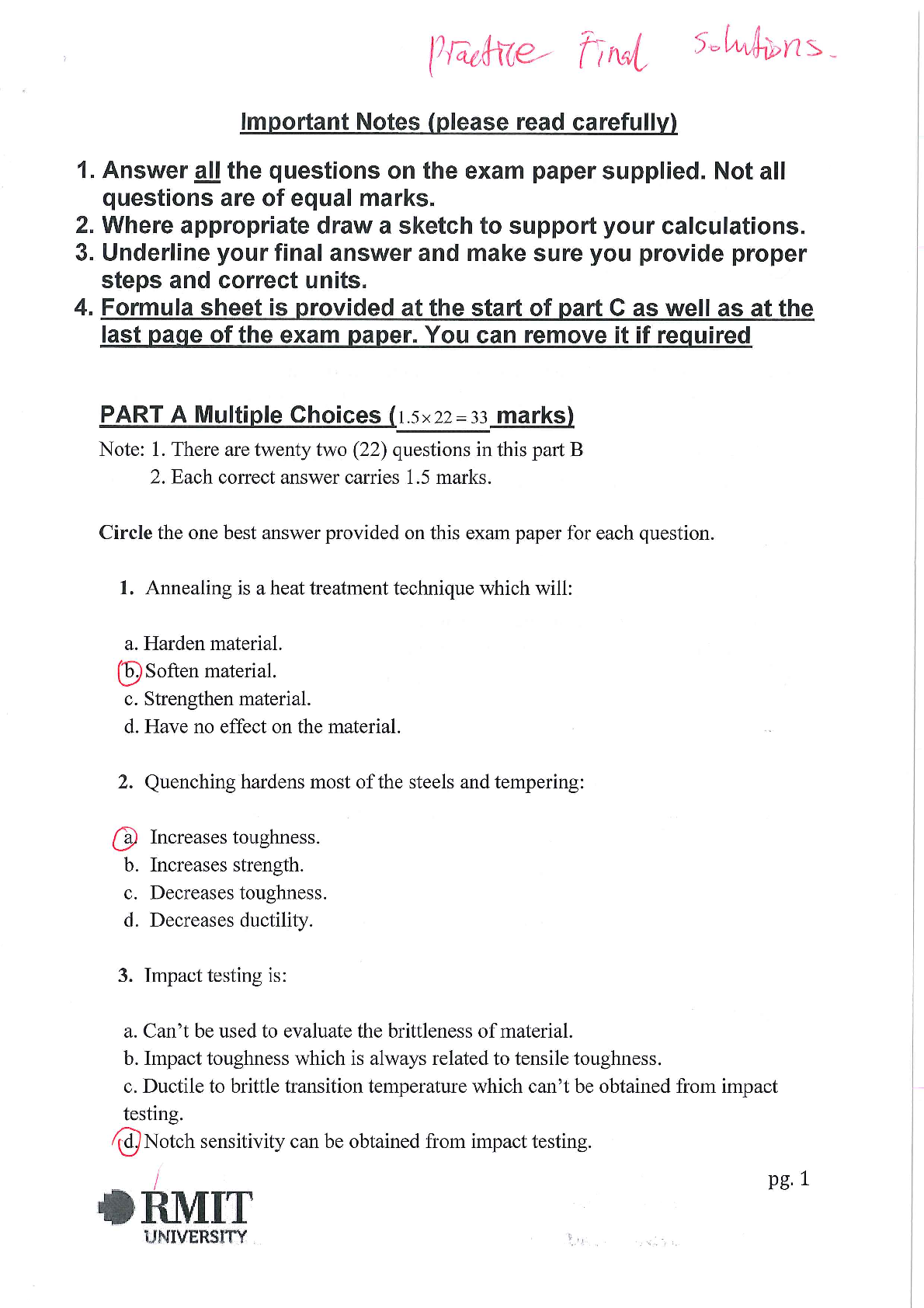
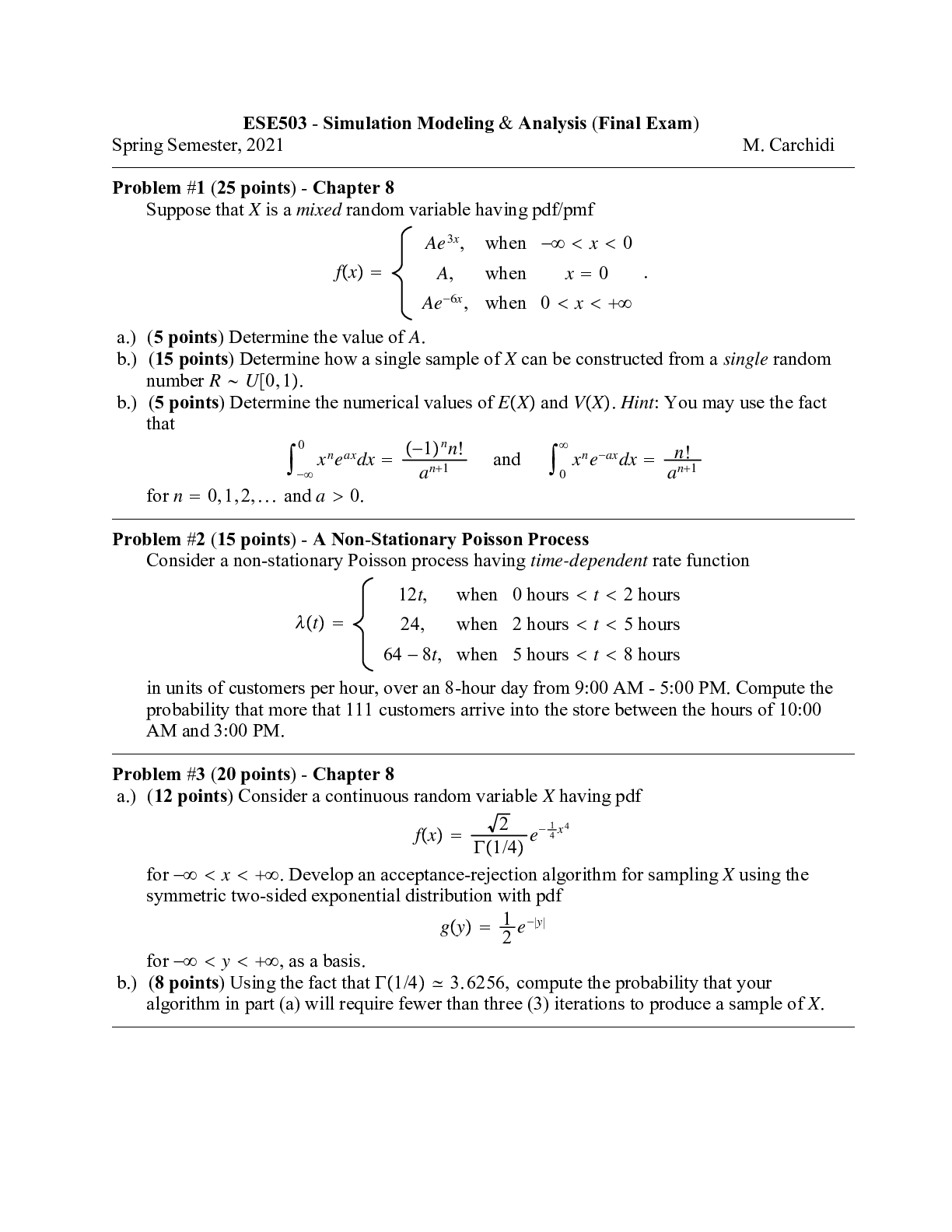

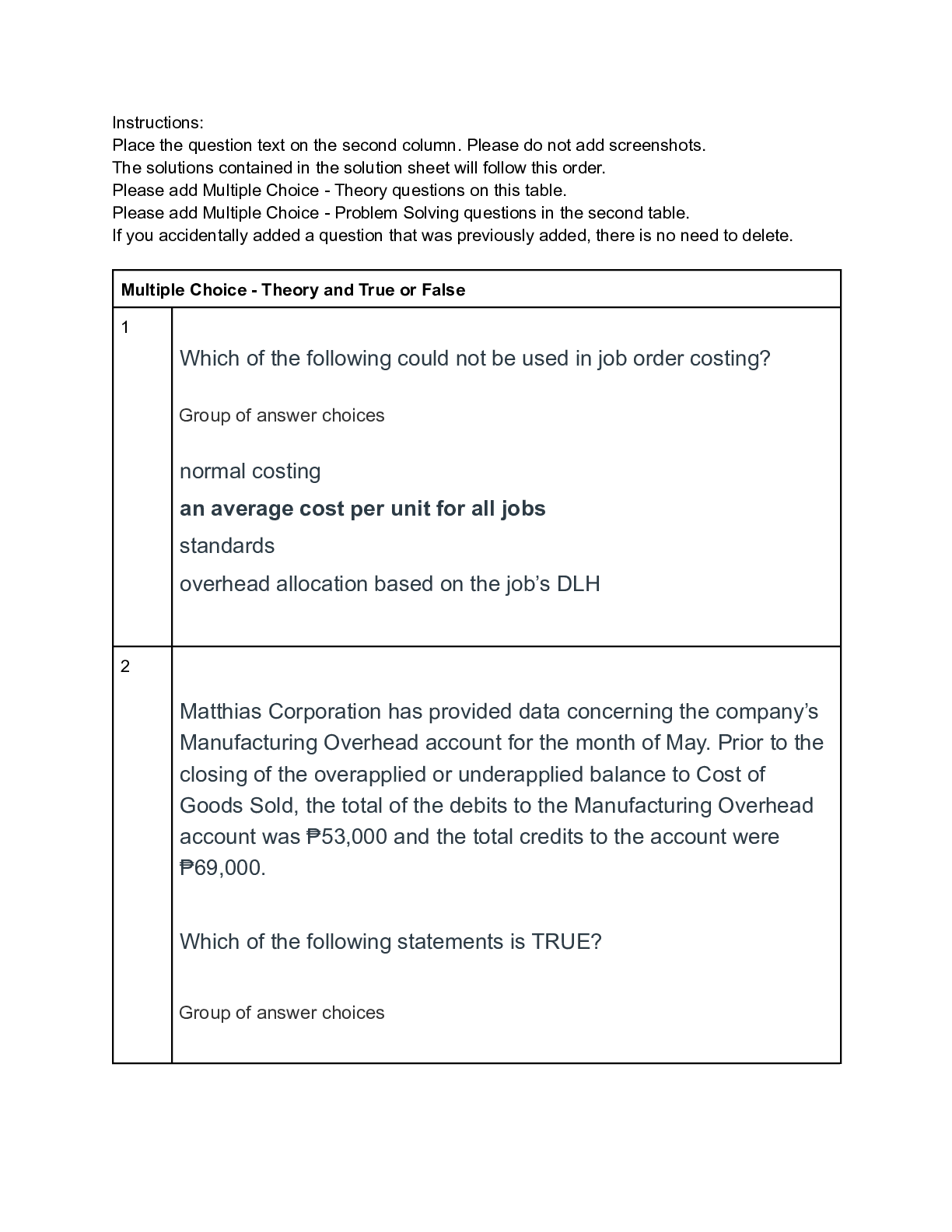
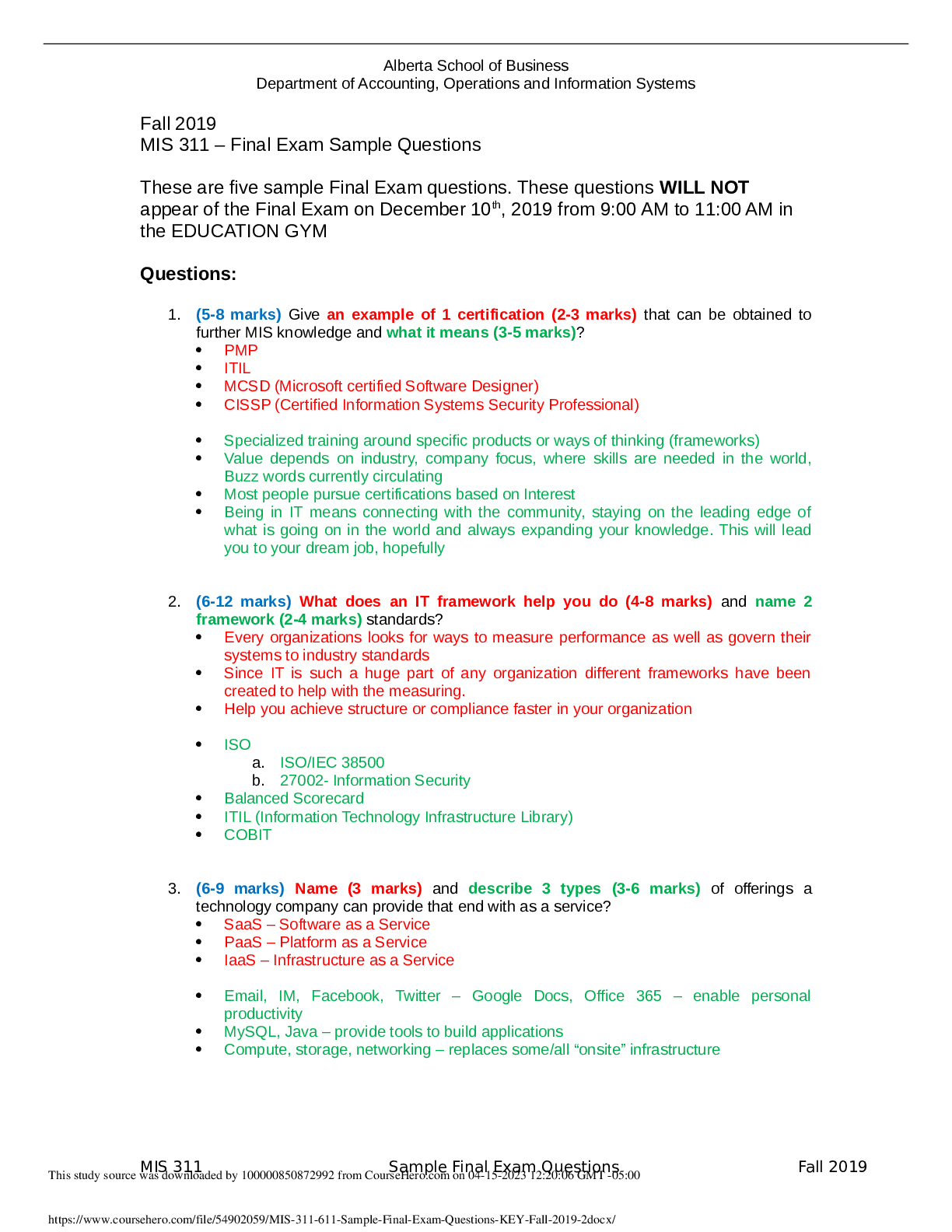
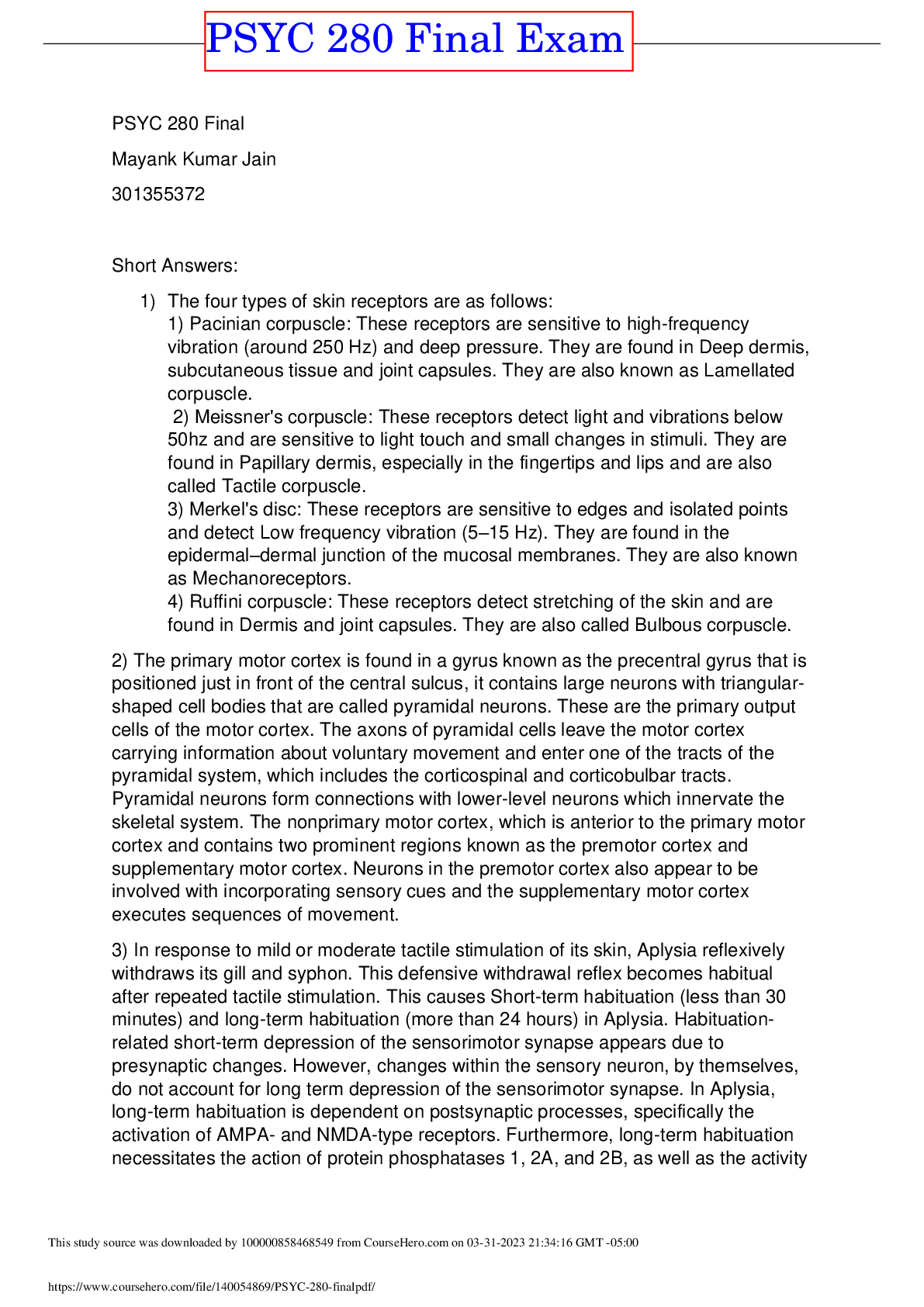
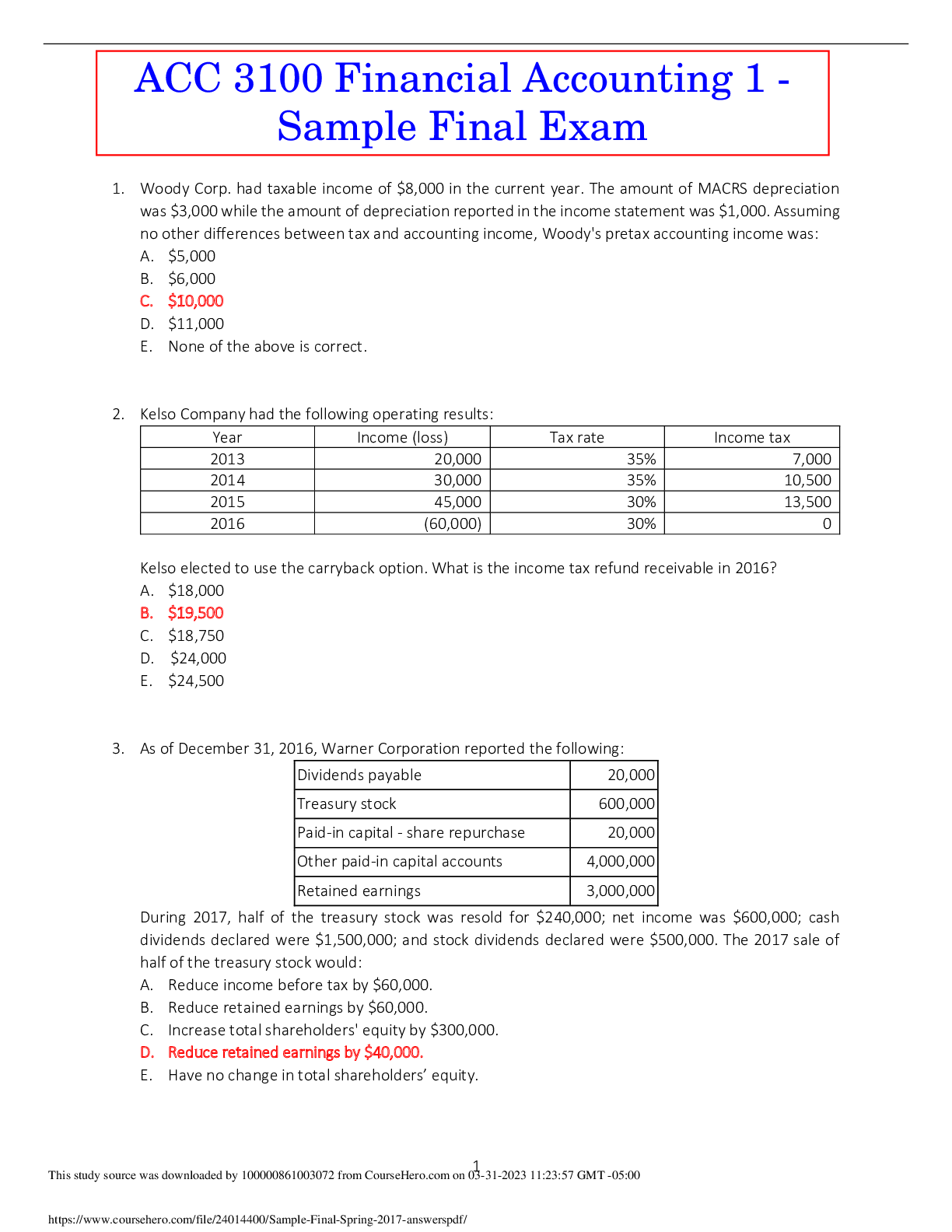




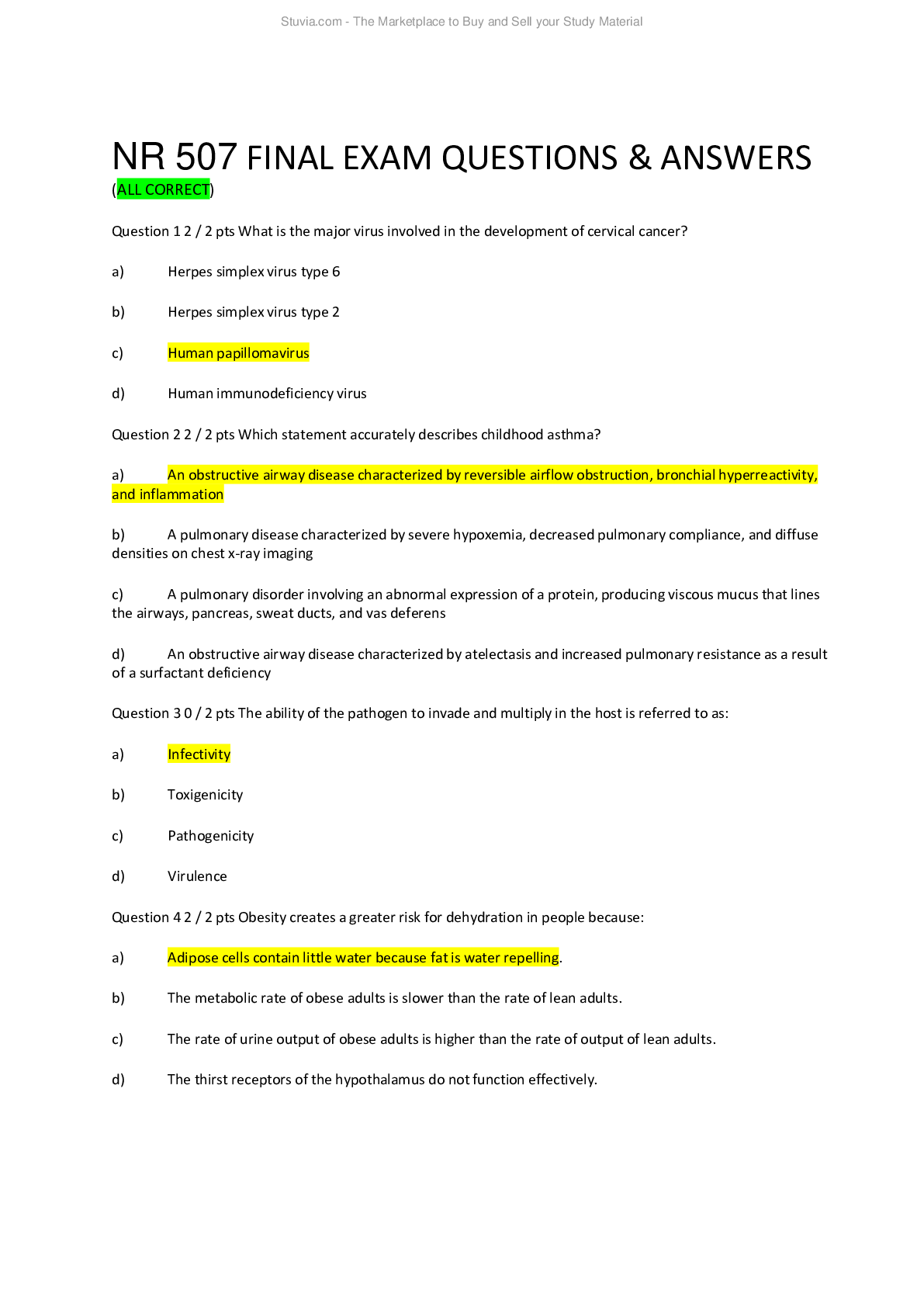

.png)
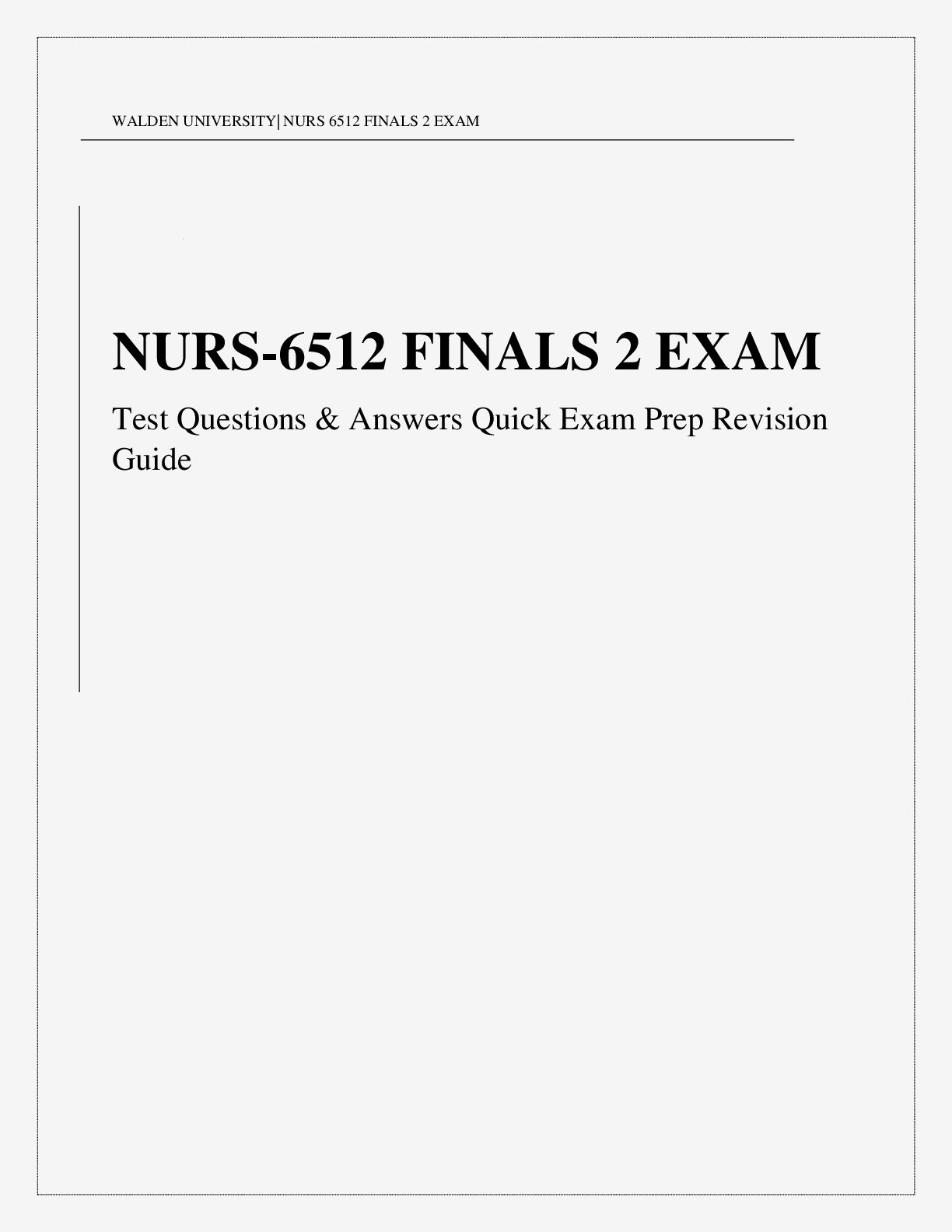
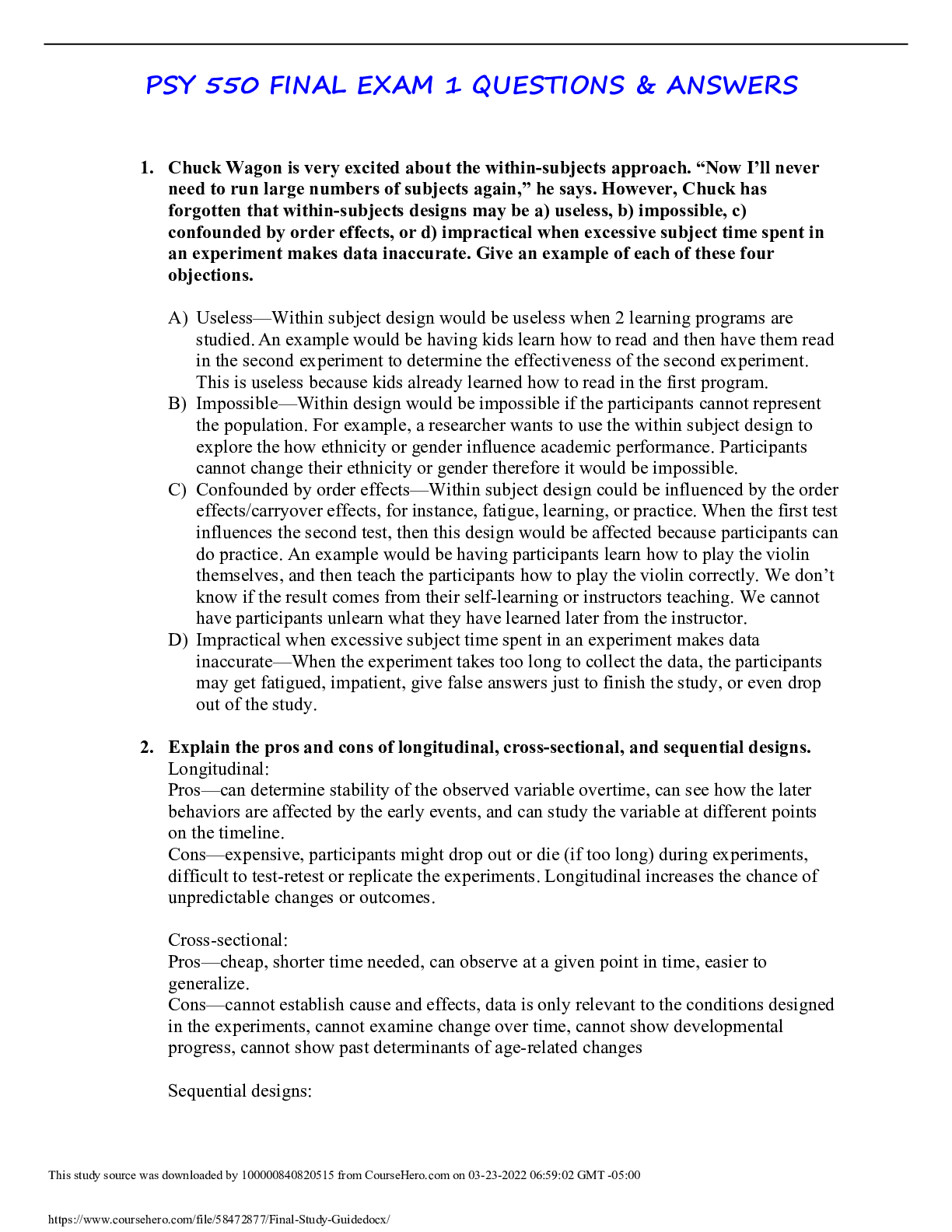
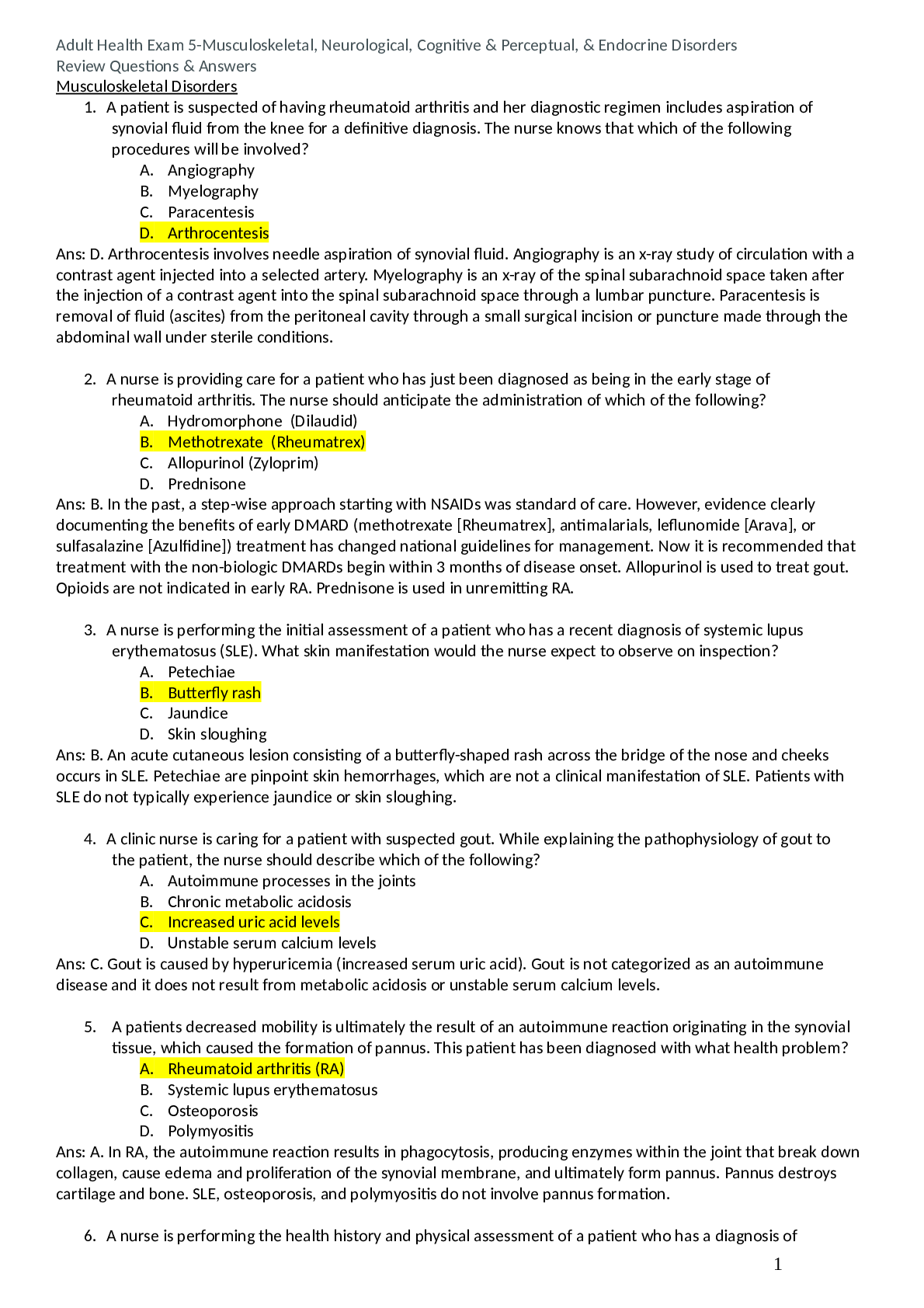

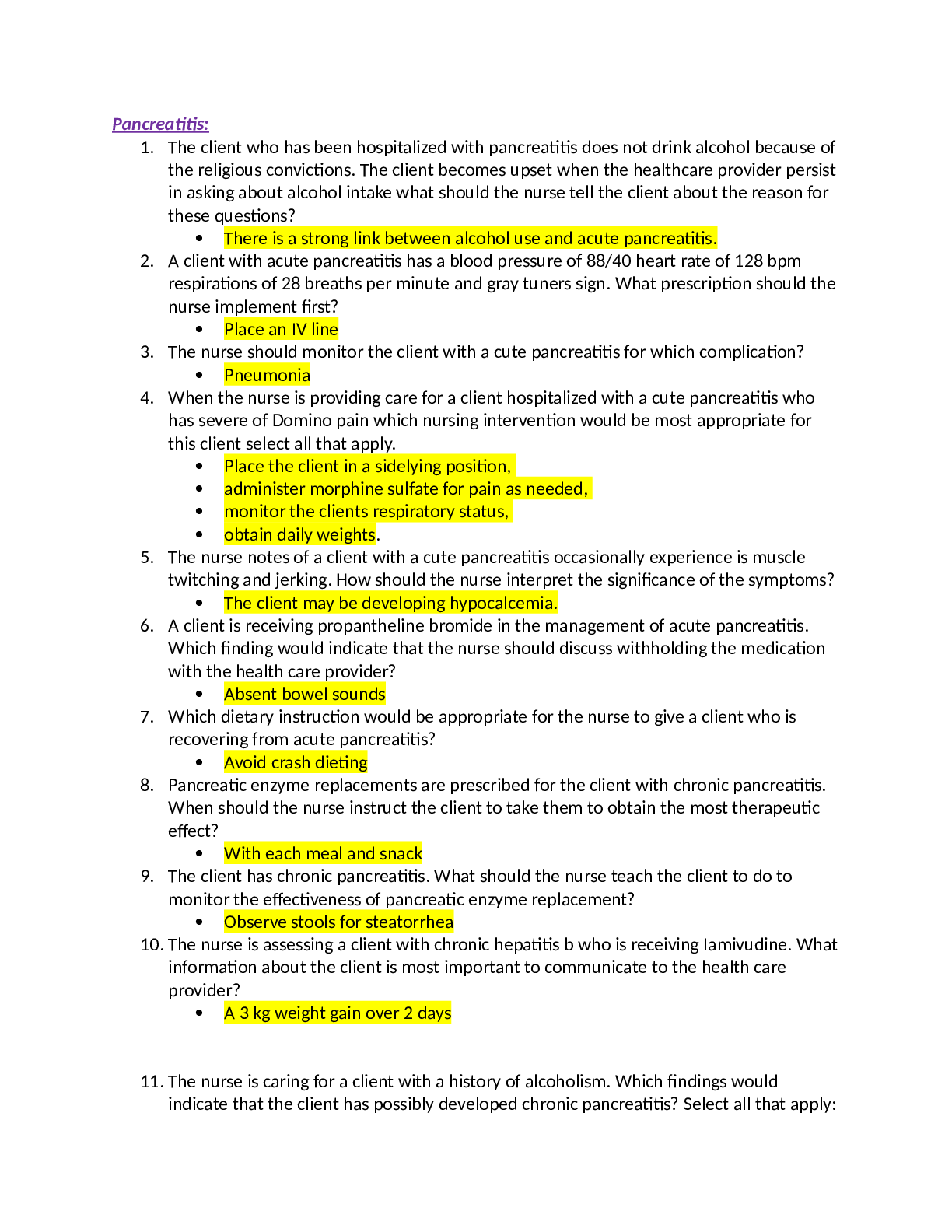
.png)


